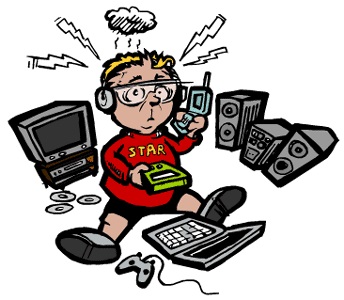514.223.5327
MAKE AN APPOINTMENTTechnology Addiction
Technology addiction. You may be wondering what exactly we are referring to when we use this phrase. Essentially technology addiction refers to something that a great portion of the population deal with on a daily basis. Some may feel it weighing them down, others may think it’s nothing or even make light of it. Technology surrounds us and frankly there is no escaping it. Whether it is cell phones, computers, gaming consoles, television, the internet, etc. it is next to unavoidable. We are almost always connected in some form. However there is a difference between using technology (even using technology on a daily basis) and being addicted to it. Nonetheless given technology’s pervasiveness the line can often be a little more blurred than we think.
General Description
For the most part technology addiction is viewed as a process addiction (like gambling, sex, and shopping) rather than a substance addiction (drugs, alcohol, etc.). An individual becomes addicted to the act and not necessarily the item. For example, a person who constantly texts on their phone is “addicted” to the texting and not specifically to the phone. However there is a fair amount of overlapping now because of the fact that many of our devices have multiple functions; this virtually increases the addictive qualities of any item.
What to look for
Have you ever forgotten your phone at home? How was that experience? Did you feel anxious? Nervous? Any physical symptoms like sweating or a racing heart? Some signs to be mindful of are:
• A need for increased amounts (time spent using, increase amount of items, etc.) and/or obsessive thinking about using
• Withdrawal symptoms when decreasing usage (irritability, anxiety, etc.)
• Difficulty or lack of success when trying to cut down or control usage
• Important social, occupational or recreational activities are given up or reduced because of use (skipping class, quitting your job, losing friends, etc.)
• Use is continued despite knowledge of having persistent or recurrent physical or psychological problems that are likely due to or exacerbated by usage
• Lying to family members or friends to conceal activity
• Spending excessive money (new items, online fees, etc.)
• Using in order to escape life problems or to relieve feelings of helplessness, guilt, anxiety or depression.
• A general decrease in physical activity and a disregard for one’s health including sleep, eating, and/or personal hygiene.
Suggestions
Consciously make efforts to reduce usage. Write down and monitor (on a piece of paper not on a device) your usage. Set limits in terms of time spent using such as where you can use and set specific goals for usage (e.g. respond to five emails as opposed to simply “checking emails”). Anticipate that you will feel some anxiety as you try to reduce usage. Plan to integrate anxiety reduction strategies or try some of the mindfulness exercises available on this website to help you cope with this. Integrate activities from your usage into the real world. Meet with friends rather than texting. Play cards at someone’s house rather than in a virtual environment. The same applies for children. Set limits and monitor their usage. More importantly, practice what you preach. Children learn so much from observing. No devices at the dinner table? The same applies to you.
If you need further support in coping with a technology addiction of any kind, please consult with one of our professionals at (514) 223 5327.
Written by: Robin Jolivet M.A.

